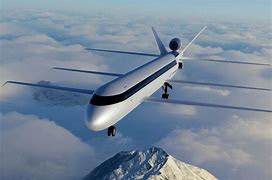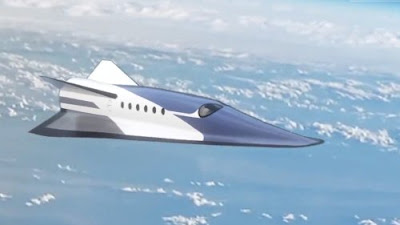New Jumbo Jet Uses 70% Less Fuel
Tri-Wing, Greener Flying
Source: SE Aeronautics
SE Aeronautics SE200
Aircraft jet fuel emissions are among the top contributors to global greenhouse gas emissions and Climate change. Now, from Alabama-based SE Aeronautics comes a tri-wing jumbo jet prototype, the SE 200, that cuts jet fuel consumption by 70% and reduces CO2 emissions by 80%. The design and performance of this green flying prototype are radically different from other aircraft now in use.
Super Efficient Passenger Jet
The SE 200 is an ultra wide plane capable of carrying more than 264 passengers. It is a tri-wing design with a double tail fin and two engines mounted on the rear of the plane. It flies at subsonic speeds with a top speed of Mach .90 or 690 mph. The projected range of the aircraft is 10,560 miles. SE Aeronautics calls it a super efficient passenger jet. The aircraft has a great deal of versatility. It is capable of use in smaller airports, not normally serviced by commercial aircraft of its size. Its high-lift wing design enables it to takeoff and land on shorter runways.
Technological Differentiators of SE 200
Here are key details on what makes this jumbo jet perform in a more sustainable, green way. On the SE 200, fuel is stored in a compartment on top of the fuselage not in the wings as is common in most aircraft. As a result, designers were able to create much thinner and more aerodynamic wings which significantly cut on fuel use. The fuselage is different. The company claims that SE 200 is a safer, 100% molded composite plane. The fuselage is a single piece of tough composite not a number of large sections bolted together. As a result, it has a lesser likelihood of breaking apart in the event of an accident. SE Aeronautics says that the SE 200 is the most efficient plane ever built and that it takes them less than 1/2 the time to build it than other aircraft of its size. It is a vision of the future of flying with cleaner and more sustainable skies. For a comprehensive look at the future of flying, go to https://read.amazon.com/kp/embed?asin=B093J89VF5&preview=newtab&linkCode=kpe&ref_=cm_sw_r_kb_dp_26VWTZYXECNT2D0RABDJ





Comments
Post a Comment